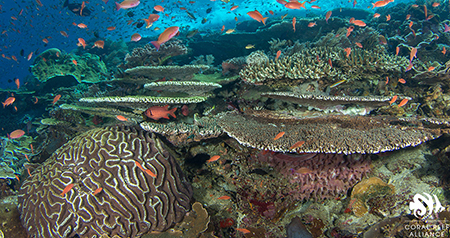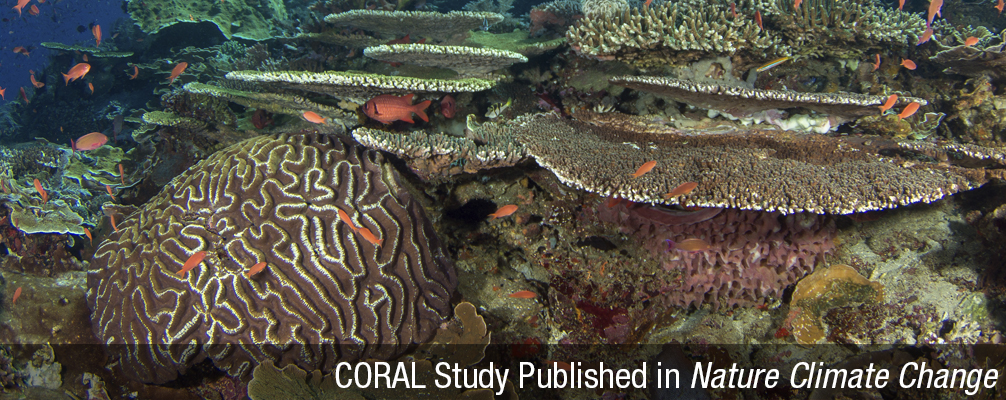In a pioneering peer-reviewed study, scientists from the Coral Reef Alliance demonstrate that coral reef management that takes evolution and adaptation into account can help rescue coral reefs from the effects of climate change.

The study titled, “Management for network diversity speeds evolutionary adaptation to climate change” is the result of the collaborative Modeling Adaptation Potential (MAP) project to improve the scientific understanding of how coral reefs can adapt in the era of climate change.
It is well documented that climate change is causing corals to die off at an unprecedented rate, but our study provides tools that offer promise for their survival. Our results show that when evolution is enabled, conservation efforts can help corals adapt to rising temperatures.” -Dr. Madhavi Colton, co-author and Program Director at the Coral Reef Alliance.
What We Found:
Predictions about the future of coral reefs that don’t include adaptation paint a grim picture of the consequences of climate change, predicting that rising temperatures could result in a mass die-off of coral reefs as soon as 2040. Our results, however, suggest that management and evolution together can help corals adapt to rising temperatures.
The study found that the likelihood of successful adaptation increases if local threats to reefs are reduced through effective management. Effectively managing reefs includes protecting them from overfishing and water pollution, which improves local conditions for corals. Managed areas serve as sources of repopulation over the long term–corals in managed areas rescue the rest of the reef.
Importantly, the diversity-based conservation strategies performed well under a variety of assumptions and future conditions. This demonstrates that we know enough of the science to act now to establish spatial management networks that include a diversity of reef types and habitats. With the effects of climate change only increasing, we have little time to waste.
Why it is Important:
The study shows that managing reefs to facilitate evolution today and, in the future, can enhance their chances of long-term survival. Managing reefs to facilitate evolution means creating networks of coral reefs where local stressors are reduced and a diversity of coral types and habitats are protected.
Conservation planners can facilitate adaptation even in the face of ongoing and unpredictable change by prioritizing diversity in coral traits and habitats. Our models suggest that this is the best chance of helping reefs deal with climate change.
“The study shows that we know enough of the science to act- and with the effects of climate change only increasing, we have little time to waste.” -Dr. Colton
The research group is currently developing next-generation models that incorporate network connectivity patterns, using real-world data from the Pacific, Coral Triangle and Caribbean to develop regional conservation plans.
The research was funded by the Gordon and Betty Moore Foundation.
Read the full press release about this paper www.coral.org/savecoralreefs.
